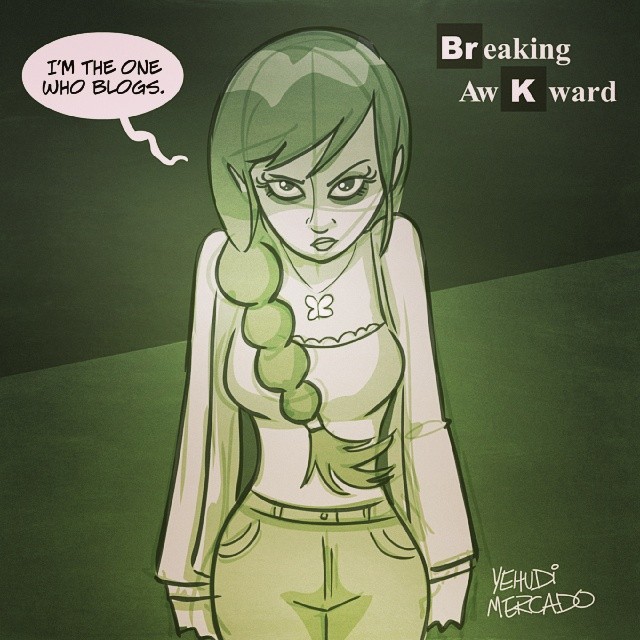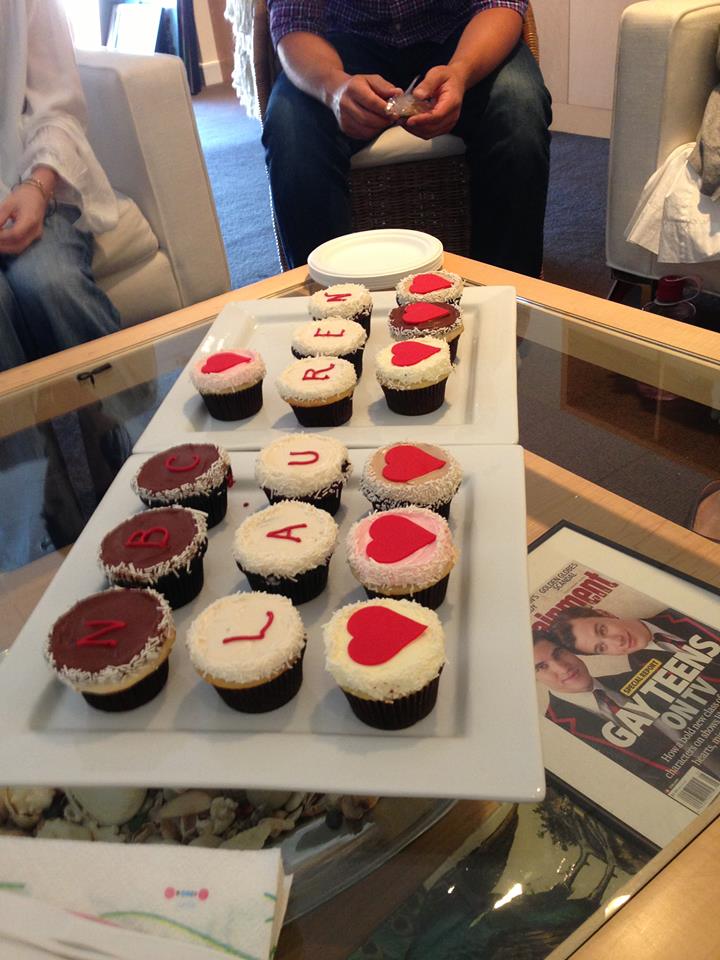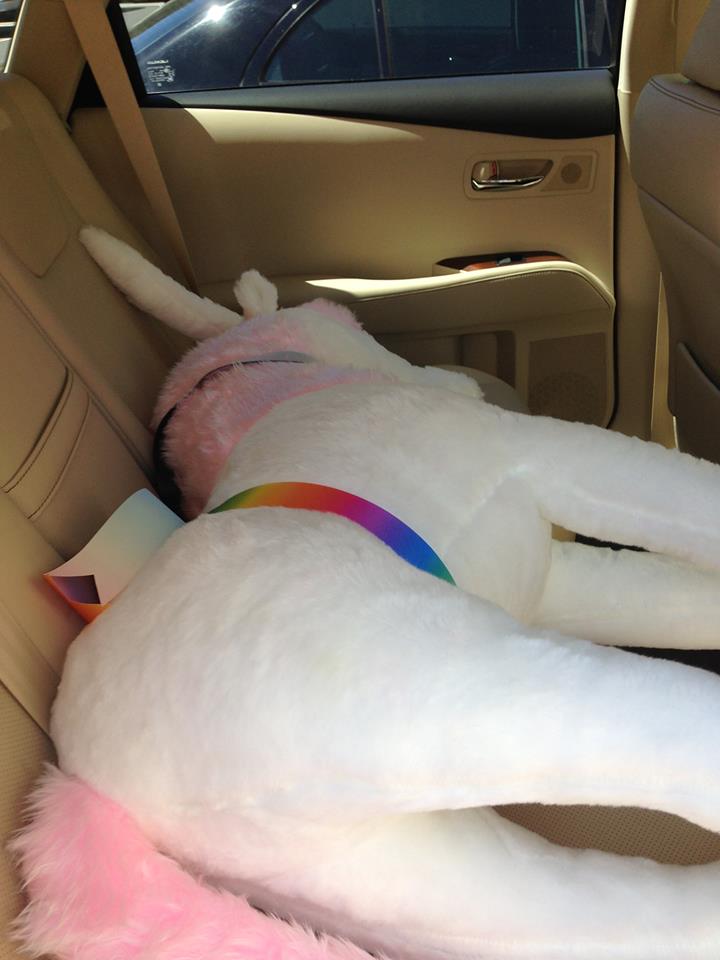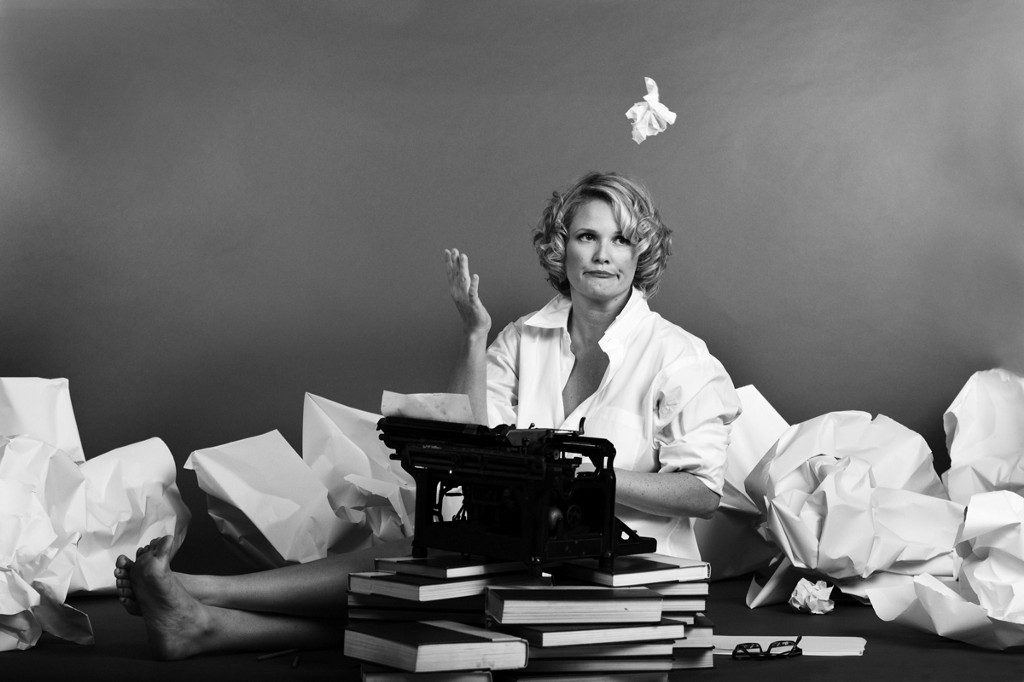|Lauren.Iungerich|
The first time I met Lauren she was one half of a writing team. I like to think I knew in those first moments of our pitch meeting that she was going to be a force of nature. She had that “it” factor that people talk about when it pertains to actors. Writers have it too. It’s an indescribable feature that all creative beings have as a part of their packed arsenal — beyond the written word. She was articulate, funny, and always seemed to have ideas that spoke to the present zeitgeist.
When we met again a few years later, she was sans writing partner… flying solo… She brought me an idea I thought was genius, but the studio didn’t see the vision. I knew then that she was going to soar… maybe not with me in the passenger seat as a producer, but with me on the sidelines, cheering her on. And that’s just what happened. Not much later, she put MTV on the non-reality map with her hit series AWKWARD. She created, wrote, and executive produced the pilot and went on to direct multiple episodes (eleven in the first three seasons, to be exact). More than just a great idea with a “hook” that every network craves, it was her delicious dialogue that caught on like wild-fire. Her style is reminiscent of the quirky creator of WB’s Gilmore Girls, Amy Sherman-Palladino. Like a brilliant ode to teens everywhere, she spoke intimately to a new generation of high schoolers. And the show exploded.
AWKWARD was nominated and won a People’s Choice Award in 2013 (nominated in 2014 and 2015 as well). It was also nominated for a Teen Choice Award for break out star for male and female — Beau Mirchoff won for male break out star.
Critics praised the show’s realism and writing and showed up on critic’s top ten lists. The New York Times called it, “The best comedy of 2011.” The show was also praised by The Huffington Post, New York Post, and Entertainment Weekly.

After Season three, Lauren felt it was time to move on from her first creation. She was swept off her feet.
First at NBC…

Then at ABC…

This next part is important to note — let it really sink in: This never happens. I don’t know many writers (and I know quite a few) that were woo’d like this — Let alone left their pitches with gifts in hand! The pursuing usually comes in the form of deals that have penalties attached if the network doesn’t make the pilot script. Rarely does it come in the form of cupcakes and unicorns. Definitely not unicorns.
RS: Do you miss having a writing partner? What was the best and worst part about it?
LU: Hmmm. I don’t miss having a writing partner. I just sometimes miss my writing partner’s presence. Does that make sense? It was an amazing situation for me to have a partner — especially someone as talented and smart as Brad (Follmer) — during a time that I was endeavoring to really own being a writer and to pursue being a working writer. Brad and I worked together for nine years starting in our early twenties and it was amazing to break story and brainstorm together.
In the beginning of our partnership we each were the other’s driving force and support system. And we had someone to be accountable to, which is a great thing to have when you’re starting out. It’s hard to impose deadlines on your own (something I struggle with now that I’m solo) and we also had a period of time where we were working on stories that we both contributed to. That said, one of the hardest parts of being in a team is running an idea by someone. You can’t just chase it. Now that I’m on my own, I’m my own committee.
We had a very organic split. We were both really finding our individual voices and coming to realize that the projects we were individually interested in were not the same. I wanted to write very female driven personal stories and he was interested in bigger ideas. Since those ideas were no longer the same, we decided to chase what inspired us. In other words, we stopped working together as a team before either of us could resent each other or one of us had to veto an idea that the other was passionate about.
And so, the break-up was as organic as our union was in its inception. Brad taught me a lot and enabled me to be the writer I am today. He remains one of the dearest people to me in my life even though we don’t talk five times a day like we used to.
RS: Where do you draw your inspiration from?
LU: I draw inspiration from things I experienced. From stories, movies, and shows that resonate with me. Music. I tend to be inspired by sense memory. Exploring feelings that I’ve had. Writing in many senses is like living a second life. I work out my own personal demons as well as re-live times of my life (like first love) that were exciting times.
RS: If there were one thing you could tell your “just starting out” writer-self… what would it be?
LU: Outline. The idea that you can find a story “in the writing” is a lie all writers tell themselves because we’re all too impatient. You can find a scene in the writing but unless you know what you’re writing to and about — you will find you stop writing because you don’t know where you’re going.
RS: How do you tune out all the opinions when working on a project? Is it hard to stay true to your gut instincts?
LU: The voices definitely get to me. But I think my own inner critic is the loudest. Every time I sit down to write it’s as hard as the last time I sat down. I always feel like I don’t know what I’m doing and that I’m a fraud. That the last good thing I wrote, is in fact, the last good thing I will ever write. But I play this trick with my head and I do this thing where I “turn my brain off” and by that I mean I turn off my inner critic and I just get started writing whatever is talking to me.
Outlining is key.
And then something clicks and I stop over-thinking and I start creating and it’s fun. It’s always challenging to get that process going. But that’s why outlining is key. It’s the tool to give you the time to think and tune out voices and just find a story without committing to the “writing” just yet. Ironically, my outlines are basically first drafts in word documents. But for whatever reason, they enable me to channel the work easier and enable me to not worry about what everyone is thinking. Truth is, I learned years ago that writing what I thought people wanted was a fool’s errand. In doing so, no one wins because there’s no pulse to the material. It wasn’t created from passion and thus usually inspires an uninspired read. I listen to my gut these days. I have to be the first fan of my ideas because without my own passion the work won’t have a heartbeat.
RS: Do you feel it’s an exciting time in television? How has it changed from when you first started?
LU: It’s both an exciting time and time fraught with fear. The way in which people are watching TV is changing and evolving from when I started (when it was all about traditional ratings). Now there are new systems to access the success of a show — like DVR recordings and downloads. And new platforms like Netflix, Amazon, and Hulu. There are a lot of new opportunities for creators and with that change and evolution, the executive/corporate ranks are nervous about the competition. Thus, I feel the studios/networks seem to be more involved. There are far too many cooks in the kitchen when making a pilot/series today. Everyone wants to make something great, but if you’re always taking into consideration all the voices and opinions of all the executives involved, you can take something original and make it look and feel generic. What was once something to someone becomes nothing to no one.
I’m also overwhelmed by the proliferation of content based on pre-existing properties. It seems to be today’s answer to ensuring you have an audience. There was a lot of innovative TV in our past. It’s not like anyone has reinvented the form. Good stories are good stories and there have always been groundbreaking shows like, Breaking Bad that seemingly come out of nowhere and surprise the masses.
Break out shows are ones that fly under the radar. The reason they rise to the top? Pure vision.
That said, those shows are not driven from a formula. And in years past there were fewer layers to the process. In my experience, the break out shows are ones that fly under the radar and are flukes. And the reason they rise to the top is because they were led by a pure vision. Someone wasn’t paying enough attention to them to screw them up. When I set out to make AWKWARD, no one anticipated it to become the hit it became and the awesome execs that I worked with at the time had a shared philosophy to support the creatives. There was very little group thought. In retrospect, I now know what a fluke it was that I was given the free rein I had to make the show I wanted to make.
RS: What was the biggest lesson you learned on running AWKWARD?
LU: The biggest lesson was the hardest lesson. I learned that my heart and head and opinion didn’t matter once my show became a success. Once a show is successful, it no longer belongs to the creator. It becomes a business. It becomes something in and of itself. Success is a wonderful thing and also can be a double-edge sword.
RS: What’s one nugget you can pass along to an aspiring TV writer that might be reading this? One tangible thing that will provide a step forward in their process.
LU: Trust your inner fan. Write something that you would love to watch vs. what you think other people want to see.
Worth Repeating: Trust your inner fan.
RS: What has been your biggest misstep?
LU: Not asserting my power. Being led by fear.
RS: What’s been your best chess move?
LU: Leaving AWKWARD. Being led by fearlessness.
RS: It makes my heart soar to see you and other women piercing through the mostly male-dominated field. Playing the dual role of female writer/director, what’s some advice you can give specifically to the women?
LU: Be a woman. Don’t hide your tears. Don’t hide your heart. Don’t give a fuck if people think you’re crazy because your estrogen gets the best of you at times. Being a woman is the best asset you have. Never try to be a man in business. Leave that shit to the men.
RS: Okay, last part of the interview — I want to end on a fun note. Word association. Give me the first thing that comes to mind — FIRST THING — when I say the following:
Showrunner: TIRED
Self-contained: BOX
Theme: STATEMENT
Pitch: EXHAUSTING
And finally,
Writer: SELF-LOATHING
And there you have it. TV gospel according to Lauren.
For more q&a’s go to: www.rebecca-stay.com/blog

